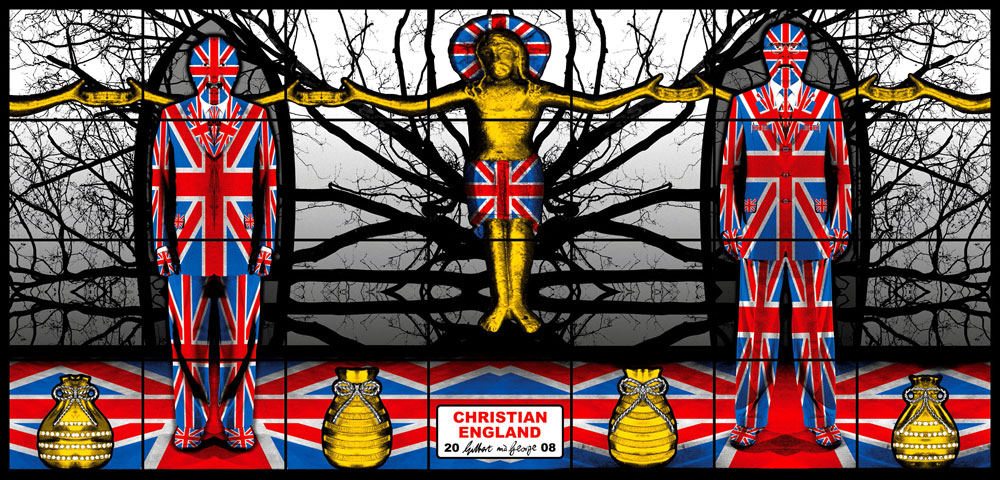Though I am a self-confessed Anglophile, it has not escaped my notice that a landmark moment in Britain has just passed. For the first time in
recorded history, those declaring who claim no religion outnumber Christians in Britain. Although some 44% claim to be Christian and 8% another religion (Islam, most likely) a surprising 48% claim none. This decline of Christianity may well be the
single greatest change to British identity, society, and culture in the past century. We all know that for some time Christianity has had a tenuous hold on the loyalty of its people and the precipitous decline in church attendance has made it a stretch to call Britain as a Christian country. Now it would seem that the statistics would require us to call Britain a secular nation with once prominent but now fading
Christian institutions, loyalty, and identity.
This has not been an overnight surprise and although it has been slow in coming the final blow to Christian identity has come rather suddenly to many of us. For several generations it was claimed that although they were not attending church, there was still a deep and profound Christian identity among the populace. The remnants of this once profound Christian identity still show up in public life and conversation -- some sort of spiritual life
relates to the teachings of Jesus, children are still given a "Christian" name, and folks still say "God bless". These things have come to mean less and less in terms of belief and practice and may now be mere remnants of a once strong Christian culture that has faded away, leaving Christians as a minority.
Less than a generation ago, but 15 years ago, 75% of Britons regarded
themselves as Christians. Whatever happened to erode this Christian identity and transform a once silent majority of private,
non-churchgoing believers, the day has come. Just 5 years ago, the number of Britons claiming no
religion was only 25% and yet that has seen a stellar rise to the point where it may soon become an absolute majority.
While this has profound implications for life in Britain, it has even deeper implications and consequences for the Anglican Communion. Surely those missions in Africa now look upon their mother church with more than sadness as they see how liberalism and a skeptical view of Scripture and tradition have slowly but surely turned a nation of predominantly Christians into an atheistic or agnostic land. The tensions within the Anglican communion are made even more difficult by the fading glory of the Church of England and the people who once filled the pews. I am ever so saddened by the decline of Christian identity there and in the rest of Europe and yet I cannot look across the pond, so to speak, without taking serious stock of what is happening within America.
Christianity is on its way to become an alien culture, a stranger to our land and values, and an exile communion. It has surely been hastened by the same kind of shallow religion that was virtually inseparable from American civil religion (just as it was in Britain). It will require many changes as we become a minority, even an unwelcome minority, in a nation and among a people intent upon ridding themselves from Christian identity and morality as if it were just so much baggage hindering the free exercise of will and desire.
When everyone does what is right in their own eyes, it is not only religion that suffers but the whole fabric of national identity and its common life of morality and civic virtue is soon to follow. Pray, my brothers and sisters, that we remain faithful enough and strong enough to speak forth the Word of rescue to a culture intent upon killing itself. And pray for Christians who remain in Britain and the rest of Europe. He who endures to the end shall be saved....

The same thing that has happened in Britain is happening in the United States.
ReplyDeleteIt started with the treacherous piece of legislation known as LBJ's Immigration and Nationality Act of 1965, which eliminated the quota system of preferred countries of immigrants who would benefit the U.S. or who would best assimilate into U.S. life. Instead the Act eliminated the quota system and allowed immigrants whose culture or religion were inimical to Christianity and assimilation into American life, and in such numbers that, even after several generations, result in the balkanization of various cities in the U.S. Sadly, even some Lutherans, either deliberately or out of sheer ignorance, supported this treachery.
And today, with no excuse of ignorance, the treachery of some Lutherans, and especially the leadership of the Missouri Synod, has increased in their support and involvement of the leftist, Demonicrat-supporting organization, Lutheran Immigration and Refugee Service (LIaRS), which uses tens of millions of taxpayer dollars to resettle mostly Muslim immigrants in areas around the U.S. that often do not have the resources to deal with the resulting increased welfare, disease, and crime rates. In addition these immigrants are not adequately screened for ISIS members and supporters. Thus in assisting these immigrants LIaRS may indeed be giving aid and comfort to the enemy.
At the 2016 Convention of the LCMS, delegates have an opportunity to reject any support for LIaRS and to ask that LCMS officials (and past convention delegates) apologize for their involvement and support of LIaRS.
More info on LIaRS and other VOLAGs is at Refugee Resettlement Watch website.
IF the Anglicans in South Sudan are asking the LCMS to become Lutheran, then the LCMS would have learned exactly how to convert Anglicans to confessional Lutheranism. Why can't the same methods be used in Britain to Lutheranize that country?
ReplyDeleteThere aren't that many serious Anglicans left in Britain.
ReplyDeleteThey might as well use the South Sudan situation to Lutheranize the rest of the former British empire. We can only hope that it would have a positive effect on British Christianity.
ReplyDelete